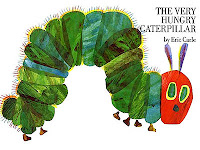Name: Eli Joshi
Age: 5
Gender: Male
Lifestyle: Parents are together, has a younger brother, and goes to daycare, lives in Seattle, WA
Interests: Loves Harry Potter, playing with friends/brother, has many "girlfriends" (Little girls say they're married to him) He is a know it all.
1. Harry Potter Book Set
Gender: Male
Lifestyle: Parents are together, has a younger brother, and goes to daycare, lives in Seattle, WA
Interests: Loves Harry Potter, playing with friends/brother, has many "girlfriends" (Little girls say they're married to him) He is a know it all.
1. Harry Potter Book Set
 Eli loves Harry Potter, and Suhas, his dad has been reading him all the books. So, i think this will help him gain more knowledge about words, and learn how to read in the process of enjoying the book.
Eli loves Harry Potter, and Suhas, his dad has been reading him all the books. So, i think this will help him gain more knowledge about words, and learn how to read in the process of enjoying the book. 2.Tipover
This is a game that is like legos, but a different more challenging version. This game teases the brain to think of new ways to find paths by tipping over crates.
3. Puzzle
 I think that a puzzle is one of the best ways to help a child learn how to work with small pieces and when the puzzle is something he wants, it's just an overall good choice of a toy.
I think that a puzzle is one of the best ways to help a child learn how to work with small pieces and when the puzzle is something he wants, it's just an overall good choice of a toy. 4. Legos
 Every little boy loves to play with legos, but they're all the better when they're Harry Potter, and you love him!
Every little boy loves to play with legos, but they're all the better when they're Harry Potter, and you love him! 5. Race Cars
With two little boys, you're bound to have some toy cars around. These help with hand eye coordination, plus they'll have fun playing with them!
6. Cars toys
Eli loves the movie Cars. With a set of Cars toys, he can work with his brother or other friends and race them.
7. Rumis
This is a toy that I had no idea about until he decided he wanted it for Christmas. I think this would help with strategy of building towers, pyramids, and walls.
8. Playing with friends
I think that playing and interacting with kids is one of the most important things that a kid should experience.
9. Marshmallow Gun
This is what we got Eli and Isaac for Christmas. I think this will help with hand eye coordination, and it's a fun way to fight with your brother, in a kind way.
10. Model Car Designer
This can help with designing and creating cars so thinking is used, but after it's made, then all the fun can be had!












